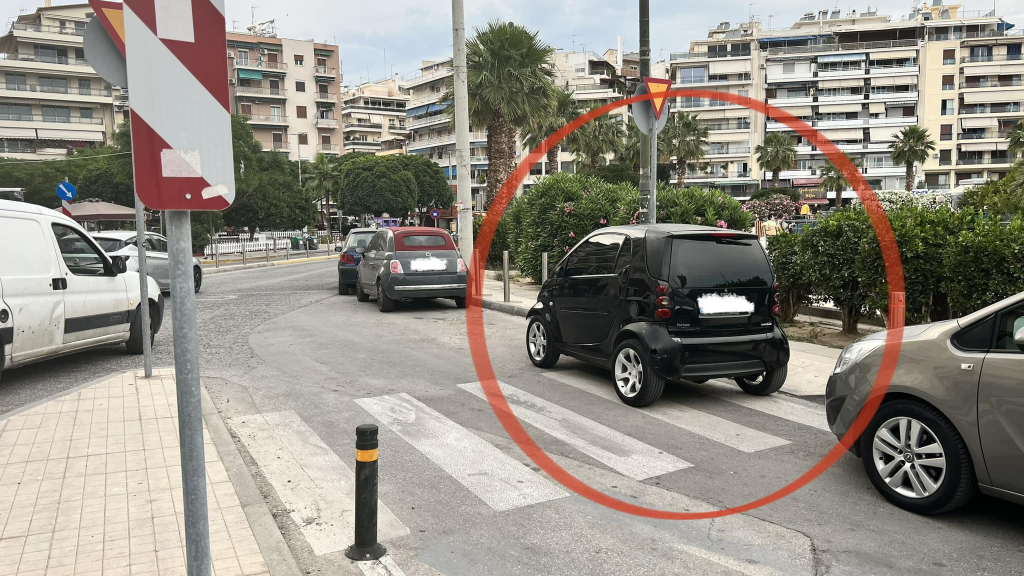In Greece, it is well known that the chances of getting a parking ticket are minimal. “Moms in the Street” argue that, when the system fails to punish drivers who park illegally, it essentially rewards them.

To put it simply, the driver who parks on the corner, at the bus stop or in front of a wheelchair ramp, is rewarded by getting a free parking space. No matter how antisocial or downright dangerous their choice of parking spot, they have saved both the parking fee and the time they would have spent looking for a legal spot. Why shouldn’t they do it again?
On the contrary, the conscientious driver is penalized. He or she spends both time (looking for a spot) and money (for fuel or parking fees). Why would they do it again? Why not just park on the corner like so many others? Why not straddle the sidewalk? And what if they block the ramp, just for a few minutes?
How many people are so conscientious that they will keep on driving around, instead of succumbing to the temptation? Especially when all around them people seem to have done just that?
It’s no wonder that illegal parking has become the rule instead of the exception. What was once done by a minority is now something nearly everyone does. It is not only due to the tragic failure of authorities to plan for parking spaces. It’s also due to the general impunity. If drivers knew that they would have to pay a fine every time they parked illegally, many would take public transportation or a taxi. It is impunity that makes them take their cars everywhere and leave them anywhere – at bus stops, corners and sidewalks. The fact that tickets are often erased (if the driver appeals to the proper authorities), makes an already bad situation worse. Today, one in four fatalities on Greek roads is a pedestrian. Does anyone wonder how they came to be walking in the street instead of the sidewalk?
Image description: A narrow street with a pedestrian crossing, complete with ramp for the disabled. A black Smart car is parked right in front of the crossing (and the ramp).

.JPG)
.jpg)


